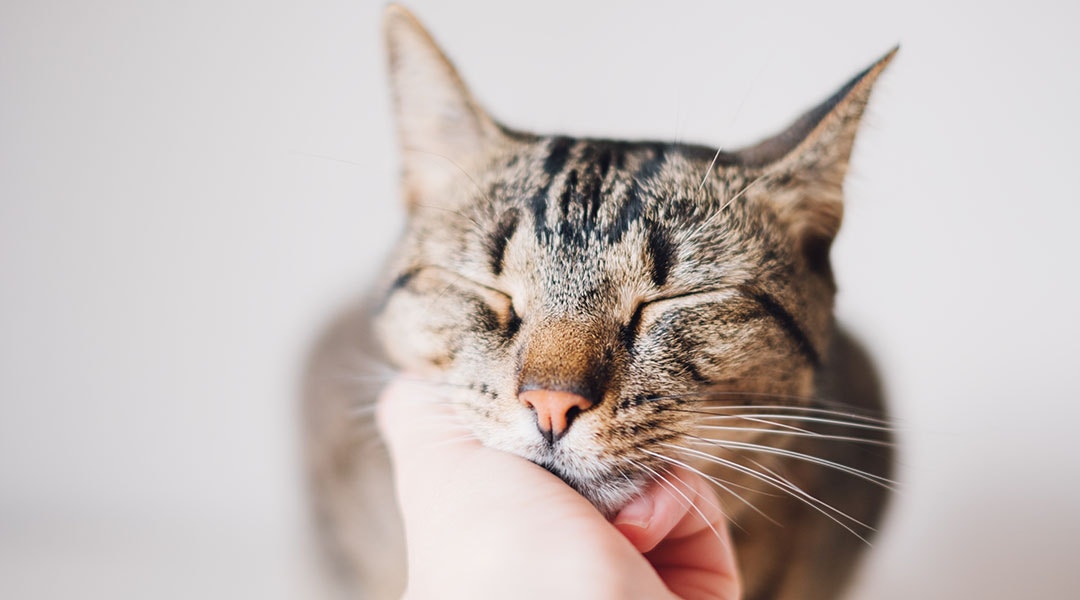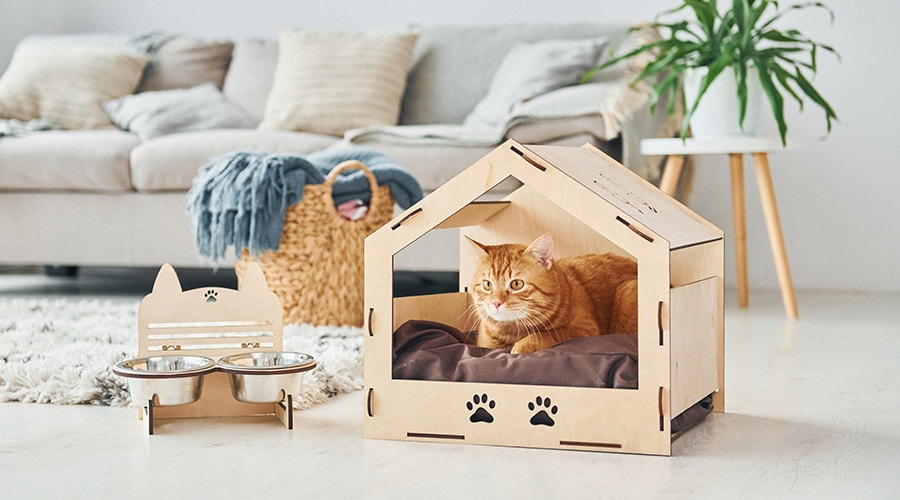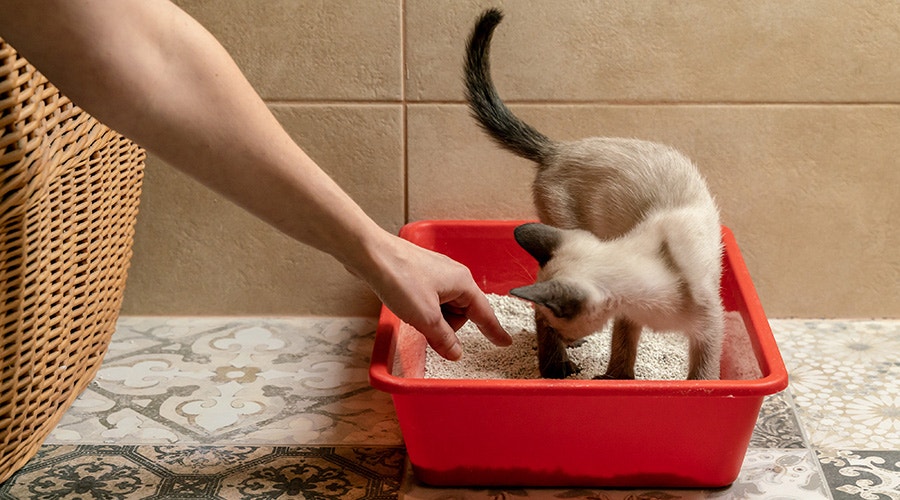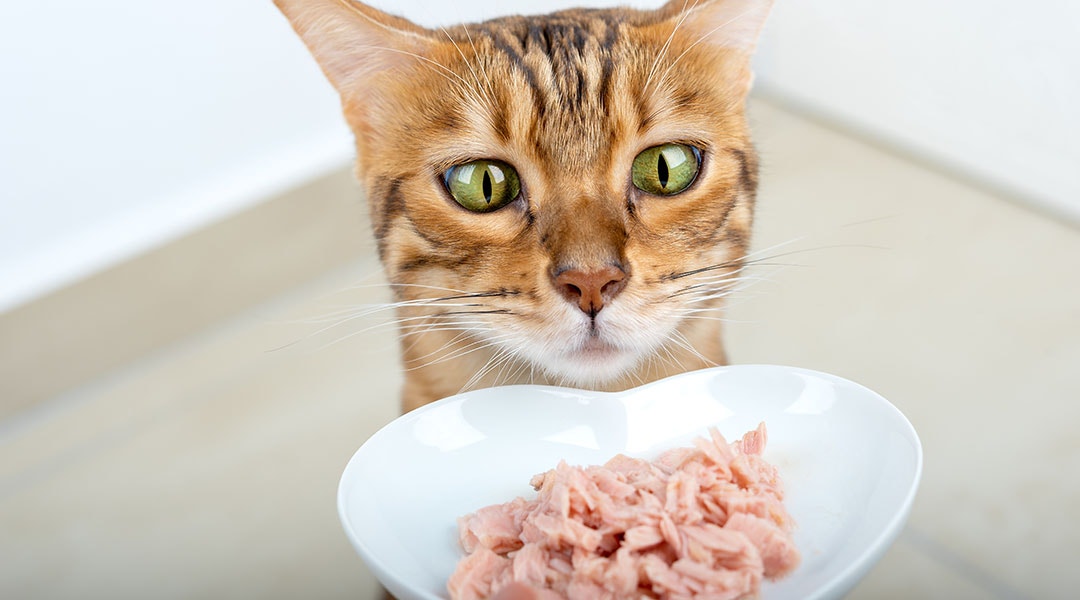We’re all familiar with the soft, rhythmic hum of a cat’s purr, it’s one of the most iconic and comforting cat behaviours. But why do cats purr? Gentle purring often starts just days after birth, as kittens purr to communicate with their mother, letting them know they’re warm, safe, and feeding well. As they get older, cats continue to purr not just to show affection and happiness, but for lots of other lesser-known reasons, too. From self-soothing to supporting healing, cat purring is much more complex than it might initially seem. This article will explore the many reasons behind why cats purr, what it means, and how you can gain a deeper understanding of your favourite feline’s unique way of communicating.
How do cats physically purr?
Ever wondered, “How do cats purr?” Purring is a unique ability among domesticated cats and wild felines, and the mechanics behind it are fascinating. It includes a combination of brain signals, muscle movement, and airflow. Repetitive brain waves are sent to the cat’s voice box, causing the muscles inside of it to twitch at a rapid rate (between 25 and 150 vibrations per second!)
As your cat breathes in and out, the twitching causes its vocal cords to separate, resulting in a vibrational sound that we know as purring. As the diaphragm controls breathing, it also starts to move with these signals, providing a constant airflow through their vibrating vocal cords. That’s how the smooth, steady purring sound is made.
Has your cat started drooling? Explore some potential causes here to help you decide whether a visit to the vet is necessary.
Common reasons for why cats purr?
Cat purring meaning goes beyond just being happy. There are lots of different reasons why cats purr. Let’s take a look at some of them below:
Relaxation
One of the most common reasons for a cat purring is that they’re relaxed. They tend to make this calming sound whenever they’re curled up somewhere, falling to sleep, kneading a cushion or blanket, or being stroked by their humans. If they’re purring in these situations, it’s a clear sign that they’re feeling happy and content.
Communication
Similarly to meowing, purring is a way that cats can communicate. They begin life by purring to their mother, and over time, start to purr to their human family as a way to talk or signal to them. It could be that they purr around their favourite bag of treats to let their owner know it’s time for a reward. Or, in more serious cases, they may start purring to communicate that they’re not feeling too well.
Attention
Some cats love attention, and if they’re not getting any, they may purr to remind you that they exist. Whether it’s for a stroke or a bowl of food, cats might purr as a gentle way of getting you to do something for them, before they start meowing.
Self-Soothing
If they’re ever anxious, stressed, or feeling unwell, cats may purr as a way of regulating their nervous system and creating a sense of calm. It’s the feline version of when a human might hum or take deep breaths to relax.
Physical Healing
The frequency of the vibrations created during purring is believed to support the cat’s physical health, too. We’ll explore this in more detail later on in the article!
Bonding
Purring can help strengthen bonds, whether that’s between a kitten and its mother or a cat and its owner. If a cat is purring around you and seems content, it’s their way of telling you that they trust you and are enjoying your company.
Natural Instinct
Sometimes, purring is simply second nature. As cats often start purring as kittens while they’re nursing, the behaviour becomes deeply ingrained very early on. As they grow, it can turn into a habitual response, especially in familiar or comforting situations like napping, cuddling, or enjoying a meal. For some cats, purring becomes part of their daily routine!
Does purring have healing powers? Myth or science?
There is a theory that cat purring has healing benefits for both cats and humans. Some of the suggested benefits include bone regeneration and muscle relaxation, with some studies suggesting that the frequency of purring vibrations, typically between 25 and 150 Hz, could also aid in tissue repair and reduce inflammation. It’s a very interesting and impressive theory, but it’s also important to note that more research is needed to fully understand the extent of these potential benefits.
If your cat is yowling, it’s important to understand the meaning behind this noise. This article will explore different causes of cat yowling and what you might need to do about it.
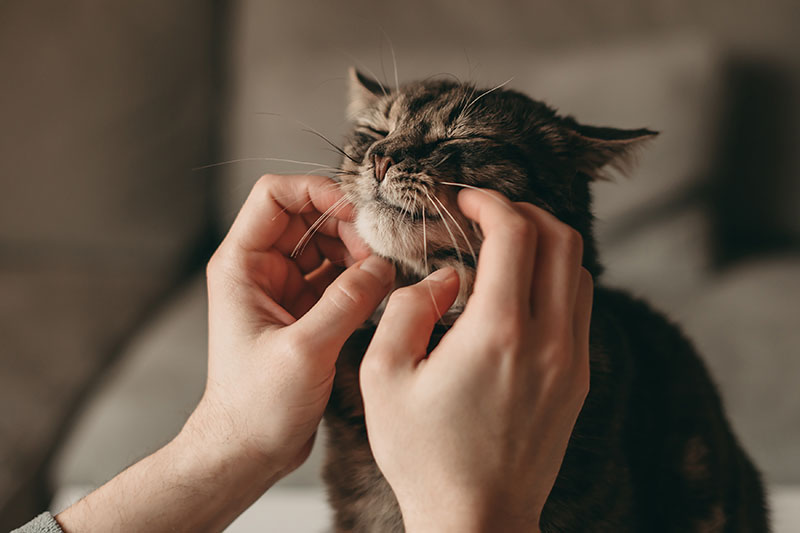
How to respond to a purring cat?
When your cat starts to purr, take a moment to look at their body language before responding. Observing the behaviour they’re displaying will help you to better understand what their purring might mean, and what you should do next. If they appear to be relaxed with their eyes half closed, chances are they’re enjoying the moment, so you could try to play with them or gently scratch them under their chin. If they stop purring or their body language changes abruptly, it could be time to give them some space.
When to be concerned about your cat purring?
Although most of the time your cat’s purring will be nothing to worry about, there may be occasions when it’s signalling something more serious. If you notice that they are purring excessively or it’s more unusual than normal, especially if it’s accompanied by other concerning behaviours, it’s important to take action. Here are 3 signs to look out for:
- If your cat is retreating or hiding as they purr, they may be feeling stressed or be in some sort of pain.
- If they stop eating or there is a significant change in their appetite, they could be feeling unwell or experiencing discomfort.
- If their purring seems out of place or they’re also very lethargic or aggressive, it’s a good idea to get them checked out at the vet's.
Conclusion- Why do cats purr?
Purring is a unique form of communication that only exists in the world of felines, making it a special and essential part of the human-cat relationship. This gentle rumble is their way of telling you that they’re:
- happy
- relaxed
- stressed
- self soothing
- unwell
- in pain
Cats' purring can also act as a polite nudge to give them a treat! Understanding how and why your cat purrs will help you, as the owner, respond more effectively to their needs and care for your cat in the best way possible.
Frequently asked questions about cats purring?
What does it mean when a cat purrs at you?
When a cat purrs at you, it normally means that they’re feeling safe and comfortable in your company. It’s typically a sign of affection, and may also be a way of telling you that they’d like some attention, a treat, or food.
Are cats really happy when they purr?
Cats may not always be happy when they purr, as the noise can sometimes signal stress, discomfort, or pain. They may be self-soothing by purring, but it’s not always easy to tell. Look at their body language for some more clues as to what they may be trying to tell you.
Do cats control their purring?
Cats don’t seem to be consciously able to control their purring, in the same way that they can control other behaviours. The purring process is automatic and activated by brain signals. It’s seen to be a natural response to certain emotions that they may be feeling or physical states they’re in.

